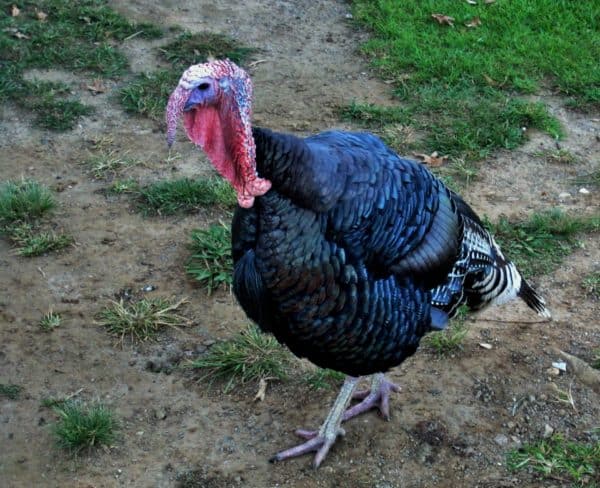The American Thanksgiving turkey is more Mexican than American, says new study

 Did the American Thanksgiving turkey tradition come from their Mexican neighbours?
Did the American Thanksgiving turkey tradition come from their Mexican neighbours?
Turkey has been on the menu for Canadian and U.S. Thanksgiving for quite some time now, with the American tradition dating back to 1621 in Plymouth, Massachusetts, where Pilgrims and Native American sat down to a three-day celebration of the harvest, complete with a “great store of wild turkey,” according to an account by Plymouth County Governor, William Bradford.
The November feast has been a federal holiday in the U.S. since proclaimed by President Abraham Lincoln in 1863 and turkey pardoning has been a de rigueur element of presidential duties for generations, thus pinning the turkey as close to the breast of Americana as any other symbol (okay, bald eagle, you’re in there too).
But how American is the turkey, really? Adding what is sure to be a feather-ruffling chapter to the current U.S. immigration story, archaeologists with the Field Museum in Chicago are contributing to the theory that the turkey – the domesticated version of it, at least – actually started out south of the border.
At an archaeological site in Oaxaca, Mexico, researchers unearthed a collection of juvenile and adult male and female turkeys along with a clutch of unhatched turkey eggs dating back 1,500 years, all of which was likely part of a ritual ceremony for the Zapotec people of the region. “The fact that we see a full clutch of unhatched turkey eggs, along with other juvenile and adult turkey bones nearby, tells us that these birds were domesticated,” says archaeologist Gary Feinman with the Field Museum, co-author of a new study published in the Journal of Archaeological Science: Reports. “It helps to confirm historical information about the use of turkeys in the area.”
The findings indicate that turkey domestication was likely prevalent in the region at least by 400 – 500 AD, say the researchers. “People have made guesses about turkey domestication based on the presence or absence of bones at archaeological sites, but now we are bringing in classes of information that were not available before,” says Feinman. “We’re providing strong evidence to confirm prior hypotheses.”
But hold your drumsticks, everyone! There’s more to this archaeological turkey tale, as researchers with Washington State University have also just put out a study [funny how timely these things can be…] which contends that the Pueblo people of the Southwestern United States were themselves domesticating turkeys at least as far back as 200 BC.
The evidence comes from analysis of bones, blankets and even excrement dating back to what is known as the Basketmaker II era of the Pueblos where a shift was made from using rabbit fur to make blankets to using turkey feathers – one blanket alone would have used 12,000 feathers. “Turkeys were an important bird symbolically and in practical ways as a source of feathers that kept people warm in the winter,” says Bill Lipe, a WSU professor emeritus of anthropology. “And they were also important as a food source, probably primarily at periodic feasts and ritual gatherings.”
But finally, to make the whole event truly continental, we should point out that regardless of site of origin, today’s Thanksgiving dinner in the U.S. does involve a healthy dose of Canadiana, since many of the birds were actually raised in Canada. Go figure, eh?

